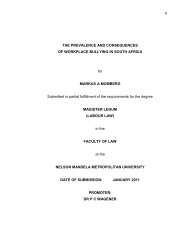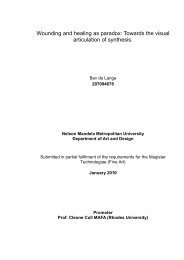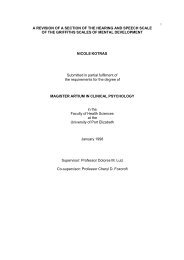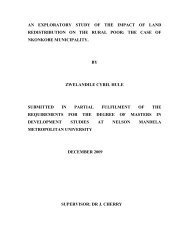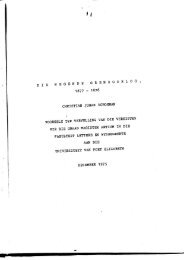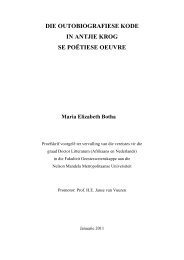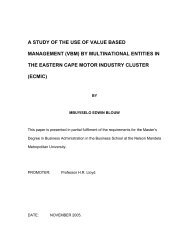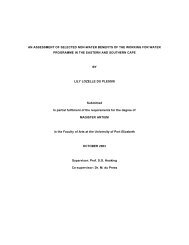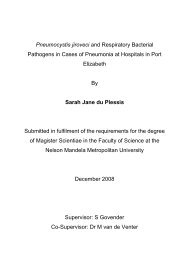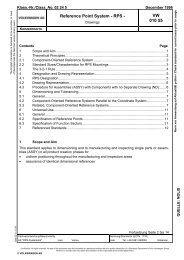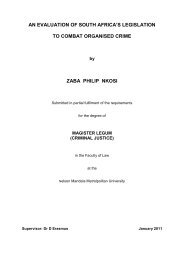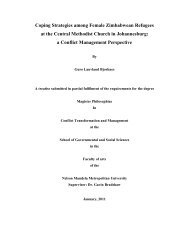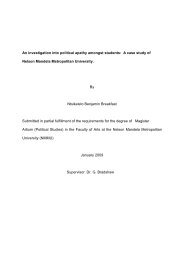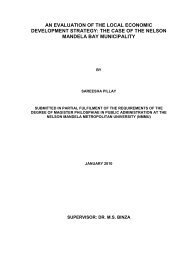nicole kotras masters thesis
nicole kotras masters thesis
nicole kotras masters thesis
You also want an ePaper? Increase the reach of your titles
YUMPU automatically turns print PDFs into web optimized ePapers that Google loves.
Mastery of Expression<br />
The young child:<br />
Uses two-word utterances ("mommy sock", "all gone");<br />
Imitates environmental sounds in play ("rrmm-rrmm", "moo");<br />
Refers to self by name, begins to use pronouns;<br />
Echoes two or more last words of sentences<br />
Begins to use three-word telegraphic utterances ("all gone ball", "me go<br />
now");<br />
Produces utterances which are 26% to 50% intelligible;<br />
Uses language to ask for needs.<br />
24-36 months. Grammar formation stage<br />
Mastery of Comprehension<br />
The young child:<br />
Understands small body parts (elbow, chin, eyebrow);<br />
Understands family name categories (baby, granddad);<br />
Understands size (the little one, the big one);<br />
Understands most adjectives;<br />
Understands functions (why do we eat, why do we sleep);<br />
Identifies a simple object when named (spoon, chair).<br />
Mastery of Expression<br />
The young child:<br />
Uses real sentences with grammatical function words (can, a, must, will, the);<br />
Usually announces intentions before acting;<br />
Holds "conversations" with other children, usually just monologues;<br />
Lessens jargon and echolalia gradually from their speech;<br />
Uses increased vocabulary (up to 270 words at 2 years, 895 at 3 years)<br />
includes slang;<br />
Produces speech which is 50% to 80% intelligible;<br />
Articulates P, b, and m correctly;<br />
Shows rhythmic disturbances in their speech.<br />
43



